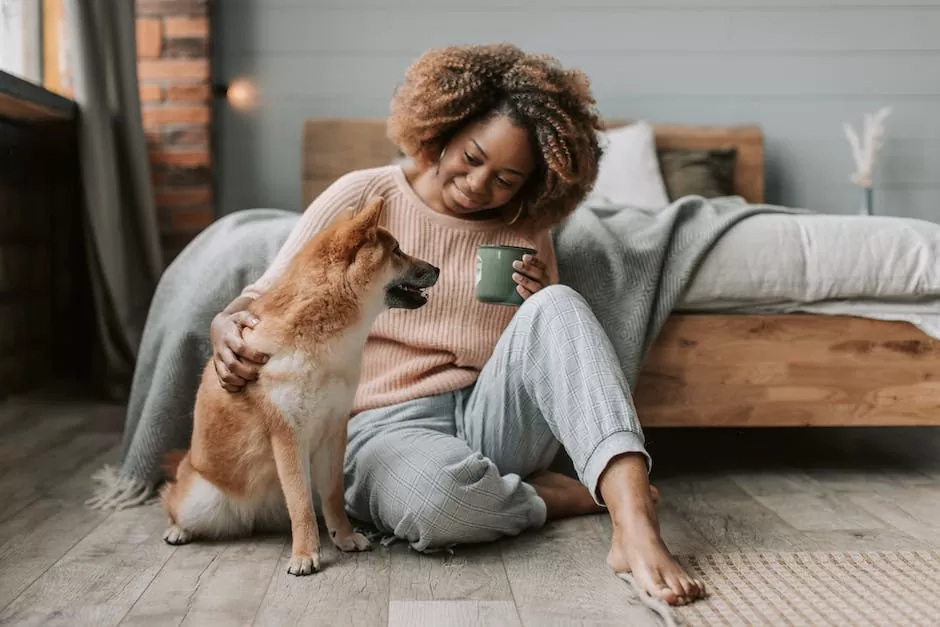How long can your dog go without pooping?

Anyone who has ever owned a dog knows that one of the most important parts of the daily routine is taking them outside to relieve themselves. But how long can a dog actually hold it in? The answer may surprise you.
While every dog is different, the general rule of thumb is that they can hold it for one hour for every month of their age. So, a three-month-old puppy could probably only hold it for about three hours. However, this number is only a guideline and some dogs may be able to hold it for longer or shorter periods of time, depending on their individual physiology and training.
If you’re wondering how often your dog should be pooping, the answer is usually about once a day. More frequent trips may be necessary for young puppies or dogs with certain health conditions. If your dog is going more or less often than usual, or if their stool is abnormal in any way, it’s a good idea to consult with your veterinarian.
Now that you know a little bit more about how long dogs can go without pooping, you can rest assured that your pup will probably make it through the night without an accident. Just be sure to take them out first thing in the morning and always provide them with plenty of fresh
The answer to this question depends on a number of factors, including the dog’s size, age, diet, and overall health. Generally speaking, however, most dogs need to poop at least once a day. Some may be able to go two or three days without pooping, but this is usually not the norm. If your dog is going longer than a day or two without pooping, it is best to consult your veterinarian to rule out any potential health problems.
How long is too long without dog pooping?
If your dog is constipated, he may strain to poop, or he may not be able to poop at all. Other symptoms of constipation in dogs include:
-Hard, dry stools
-A bloated or swollen abdomen
-Lethargy
-Loss of appetite
-Vomiting
If your dog is constipated, you should take him to the vet. The vet will likely give him a laxative or enema to help him poop.
If your dog is having trouble going to the bathroom, it could be a sign of a bigger issue. If it’s been more than two days since he has had a bowel movement, you should see your vet immediately. Keep in mind that these symptoms may be similar to those that could point to a urinary tract issue, so it’s important that your vet perform a full physical exam to diagnose the cause.
What should I do if my dog hasn’t pooped in 4 days
If you notice that your dog hasn’t pooped in more than 24 hours, it’s important to take them to the vet to get checked out. Constipation in dogs can lead to more serious issues if left untreated, so it’s best not to ignore it. If you’re worried about your dog, call your vet or the nearest Vets Now.
If your dog is having difficulty passing stool, it could be because there is a buildup of dry fecal matter in his colon. This can be a serious problem, so you should take him to the vet for help. The vet can treat the problem with enemas, suppositories, medications, or manual removal.
How can you tell if a dog has a blockage?
Intestinal blockages are a serious medical condition that can be life-threatening. If your dog is showing any of the above symptoms, please seek veterinary care immediately.
There are a number of different remedies and treatments that can be used to help a dog that is constipated. Some of the most common include pumpkin puree, canned dog food, dietary fiber supplements, stool softeners or laxatives, and enemas.
Pumpkin puree is a great natural remedy for constipation in dogs. It is high in fiber and helps to soften the stool.
Canned dog food can also be a good option for dogs that are constipated. It is often easier to digest and can help to regulate bowel movements.
Dietary fiber supplements will increase fiber in their bodies, which will help soften their stool and regulate their bowel movements.
Access to fresh water makes sure they are well hydrated. This is important because dehydration can make constipation worse.
Exercise is also a good way to help relieve constipation. It helps to get the bowels moving and can also help to reduce stress, which can be a contributing factor to constipation.
Stool softener or laxative can be used if other methods do not seem to be working. These should only be used under the guidance of a veterinarian.
Enema can also be used as a last
What foods help dogs poop?
If your dog has diarrhea, there are a few things you can try to help regulate their system. Canned dog food typically has a higher moisture content than dry food, so switching to a wet food diet may help. You can also try adding some food and herbs to your dog’s diet that are known to help with diarrhea, such as ginger, wheat bran, powdered psyllium seeds, and olive oil.
If your dog is having trouble pooping, you can try this technique to help them out. Start by placing your dog in an upright position and rub behind the back leg. Your dog may begin to kick the rear leg, but continue to rub until the tail begins to rise. Then, place your dog on their back and rub their left side vigorously for several minutes. As you rub, the vent will begin to open so your dog can poop.
What laxative can I give my dog
If your dog is constipated, your veterinarian will likely recommend Dulcolax® (bisacodyl) for relief. This medication can be given orally or rectally, and works by stimulating the bowel to help move things along. It is important to follow your veterinarian’s instructions on how to give this medication, as too high of a dose can cause diarrhea.
Pumpkin is a great natural remedy for constipation in dogs. According to the Merck Veterinary Manual, it should be given in 1 to 2 tablespoon doses with each meal. Pumpkin can be expected to produce a bowel movement and Rex relief within about 24 hours. Not only will it treat mild to moderate constipation but, given regularly, can prevent it from happening in the future.
How do you get a dog Unconstipated?
If your dog is constipated, there are several things you can do to help alleviate the problem. First, make sure they are getting enough exercise. A lack of activity can contribute to constipation. Secondly, you can give them a stool softener or laxative to help them pass stool more easily. Third, you can switch them to a prescription diet that is high in fiber. And finally, if the constipation is severe, you can have a professional give them an enema.
Your dog’s constipation could lead to some serious health problems, so it’s important to take action if you think he may be constipated. If his constipation goes untreated, he may eventually be unable to empty his colon on his own (a condition called obstipation). The colon then becomes packed with an uncomfortably large amount of feces, causing lethargy, unproductive straining, loss of appetite and potentially vomiting. If you think your dog may be constipated, talk to your veterinarian. He may recommend some lifestyle changes, such as adding more fiber to your dog’s diet, or he may prescribe a medication to help relieve the constipation.
Does peanut butter help dogs with constipation
If your dog is struggling with constipation, you may want to try using peanut butter as a remedy. Peanut butter is high in fiber and vitamins, which can help to get things moving along the digestive tract. Most peanut butter is safe for dogs to eat in moderation, so long as it doesn’t contain any sugar or salt. Be sure to check the label before feeding your dog peanut butter, and start with a small amount to see if it helps.
If your dog isn’t getting enough fiber or fluids, they may be constipated. A balanced, healthy diet is the best way to keep things regular. If your dog has eaten something they shouldn’t have, they may also be constipated. In either case, it’s important to see your vet for help.
Will a dog still eat with a blockage?
Dogs that are dealing with an intestinal blockage may show a loss of appetite. Young dogs may still try to eat, but then vomit when they realize they can’t swallow properly. If you think your dog may have an intestinal blockage, it’s important to take them to the vet right away.
If your dog’s urethra is completely blocked, he/she will strain to urinate without producing any urine. This can be painful and lead to lethargy, loss of appetite, and vomiting. If you think your dog may be blocked, it is important to see a vet right away as this can be a life-threatening condition.
Final Words
There is no exact answer to this question as it depends on a number of factors, including thesize and breed of your dog, their diet, and their general level of activity. Generally speaking, most dogs will need to poo at least once every day or two, but some may be able to go a little longer without producing a bowel movement. If your dog is displaying any signs of distress or discomfort, is straining to poop, or has not pooped in more than three days, it is best to consult with your veterinarian.
The answer may surprise you – your dog can actually go quite a while without pooping! Of course, this depends on a number of factors, including your dog’s diet, health, and exercise habits. However, as long as your dog is showing no signs of distress and is continuing to eat and drink normally, it’s probably nothing to worry about if they don’t poop for a day or two. Of course, if your dog goes beyond this, it’s best to check in with your veterinarian to make sure everything is okay.